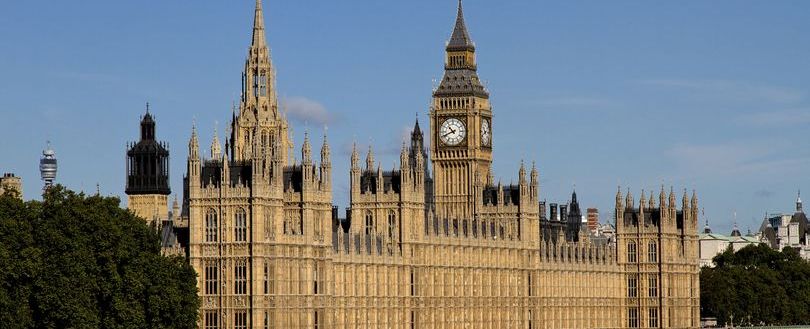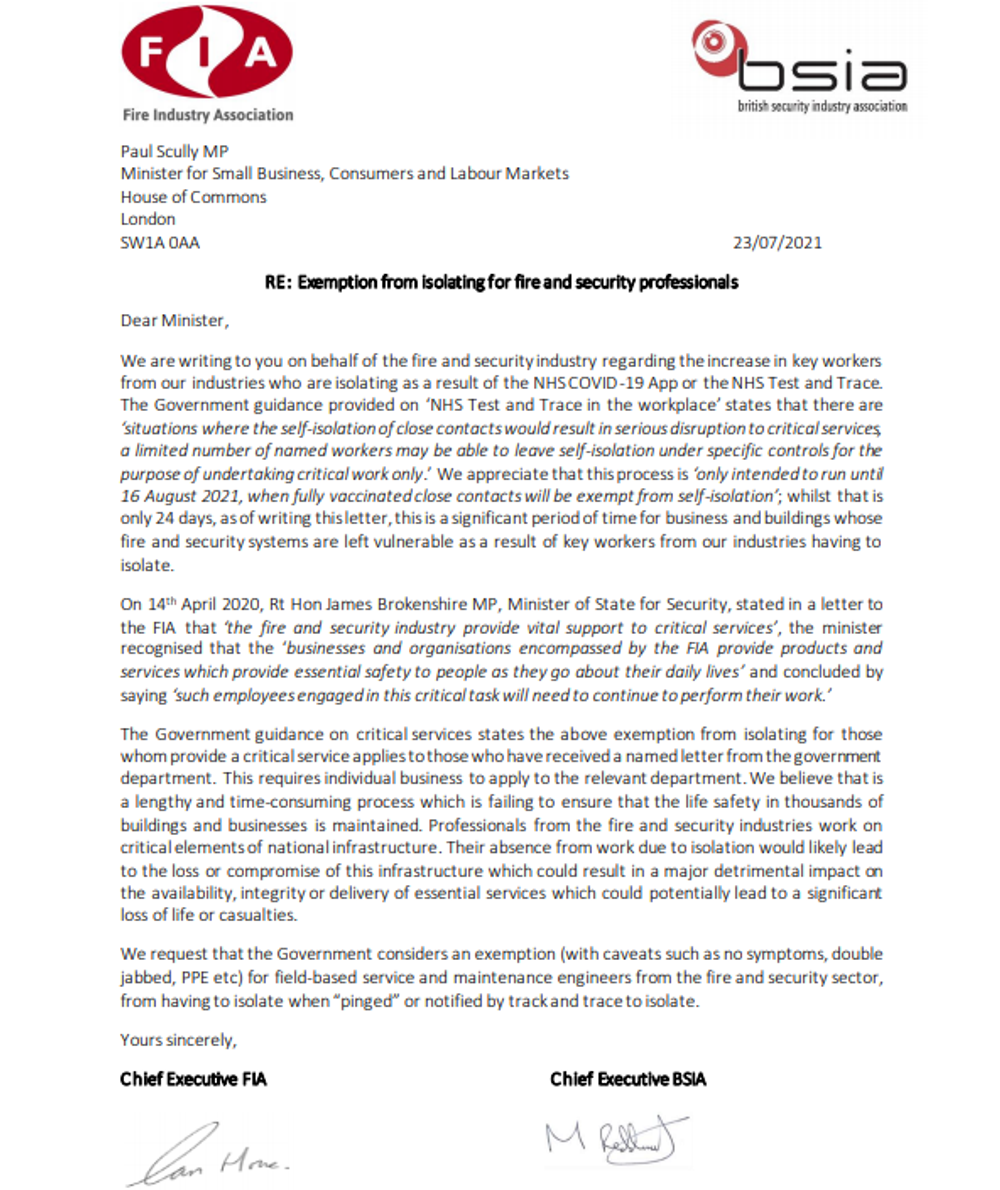
The FIA writes to the Government on the current isolation rules for key workers
Like it? Share it!
23 July 2021
Many of our and BSIA’s members have reached out to us in the last few days highlighting the detrimental impact that both the NHS COVID 19 app and Test and Trace is having on their ability to do their crucial work. We have recently written a letter to the government to relay our concerns that we have with the current process and the implications it is having on life safety in the UK. We will be sure to update you as soon as we hear back from the Government.

Below is a collection of information on if you need to isolate after being contacted by the NHS COVID-19 App and how critical services can apply to be exempt from isolation if they are working on a crucial project.
The app has always been voluntary to download and any alerts are advisory. However, anyone contacted directly by NHS Test and Trace - either by phone, text or email - must self-isolate.
Critical services
Self-isolation remains an essential tool in our national efforts to reduce the spread of coronavirus. In the small number of situations where the self-isolation of close contacts would result in serious disruption to critical services, a limited number of named workers may be able to leave self-isolation under specific controls for the purpose of undertaking critical work only.
This process is only intended to run until 16 August 2021, when fully vaccinated close contacts will be exempt from self-isolation. The government will continue to engage closely on this with employers over the summer
Who this applies to
This policy only applies to you if your employer has received a letter from a government department on which your name is listed. In this event you will be able to leave self-isolation to undertake critical work. In all other cases, you should continue to self-isolate as now.
This policy applies to named workers in specifically approved workplaces who are fully vaccinated (defined as someone who is 14 days post-final dose) and who have been identified as close contacts. Permission to attend work is contingent on following certain controls, agreed by the Department of Health and Social Care, to mitigate the risk of increased infection. This is not a blanket exemption for all workers in a sector.
The test that is applied when identifying if an individual could attend work is whether they work in critical elements of national infrastructure and whether their absence would be likely to lead to the loss or compromise of this infrastructure resulting in one or both of the following:
- major detrimental impact on the availability, integrity or delivery of essential services – including those services whose integrity, if compromised, could result in significant loss of life or casualties
- significant impact on national security, national defence, or the functioning of the state
The process is exceptional for these specific circumstances. It is not intended to avoid all disruption to services that will result from the need for people to self-isolate.
The process will not cover all or in most cases even the majority of workers in critical sectors. For example, an exception may be suitable in the case of absences in critical railway signalling roles essential for the functioning of parts of the network but is less likely to be suitable for individual train drivers. Similarly, it would be likely to apply to control room staff in power stations who are required to be physically located in the power station control rooms on site but would not apply to power station administration staff that are likely to be able to work from home. Likewise, it would be likely to apply to public servants in the control rooms of critical flood defence infrastructure but not to ministers or public servants shaping long-term flood control policy.
This process does not apply to any workers who have tested positive to coronavirus and should also not be used for contacts who develop symptoms regardless of their role or vaccination status. In these circumstances, you should continue to self-isolate as now.
What to do if this applies to your business
Where employers believe the self-isolation of certain key employees as contacts would result in serious disruption to critical services, they should contact the relevant government department – we would recommend contacting the Ministry of Housing, Communities and Local Government. They should provide information on:
- the number of people who it is proposed would leave self-isolation
- the roles those individuals need to perform
- the impact failure to do this would have and when this impact is likely to materialise (for example, is it already an issue or likely to materialise in the coming days)
The relevant department will work with the Cabinet Office and the Department of Health and Social Care to agree the roles and workplaces that are likely to meet the criteria set out above on a daily basis. The relevant department will then determine whether individual cases meet the criteria set out above. Decisions will be made rapidly on a case-by-case basis and kept under review.
Where a specific case meets the criteria, the employer will receive a letter from the relevant department setting out the named critical workers designated and telling them what measures they and those workers need to follow.
Unless employers have a letter from a government department on which the workers are specifically named, this policy does not apply and employees should self-isolate as directed.
Related news
-
Call for Publication of BS 8414 Test Data
11 February 2026
-
New FIA Environmental Guidance Legislative Overview Published
03 February 2026
Related resources
-
Euralarm-FAQs-re-Environmental-Product-Declarations-EPDs.pdf 1
27 November 2025
-
Memorandum of Association
01 September 2022
-
April 2021 - Six Employment Law Changes.pdf
09 April 2021
